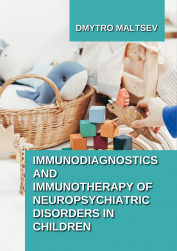Efficacy of rituximab in autism spectrum disorders associated with genetic deficiency of the folate cycle with signs of antineuronal autoimmunity
Keywords:
Immunodiagnostics, immunotherapy, neuropsychiatric disorders, children, diagnostics, therapyAbstract
Advances in genetics, molecular biology, and immunology over the past decades have significantly changed our understanding of the etiology and pathogenesis of autism spectrum disorders (ASD) in children. One of the key advances in this direction is the elucidation of the association of genetic deficiency of the folate cycle (GDFC) with ASD, evidence for which is based on the results of at least 5 meta-analyses of randomized controlled clinical trials and a number of additional controlled trials, the data of which have not yet been properly summarized. It has been established that GDFC leads to pathological biochemical changes in the child's body, which determine the development of encephalopathy with the clinical picture of ASD due to direct (metabolic) and indirect (immune-mediated) mechanisms, and immune-dependent pathways of cerebral damage are currently given a leading role in the pathogenesis of this mental disorder. Among the metabolic disorders induced by GDFC in the child's body, hyperhomocysteinemia, vitamin deficiencies, signs of mitochondrial dysfunction, and impaired nucleotide synthesis and DNA, protein, and lipid methylation processes are distinguished. These pathological biochemical changes lead to the development of persistent oxidative stress, as evidenced by the results of two systematic reviews and meta-analyses of randomized controlled clinical trials on this problem. The result of such disorders are the phenomena of neuro- and immunotoxicity, which underlie the above-mentioned direct and indirect mechanisms of neuronal damage in children with ASD. If we talk about immunotoxicity, it is currently established that in GDFC there is a disturbed development of the child's immune system with the formation of immune dysfunction and dysregulation, which, in turn, cause a phenomenon called a disturbed neuroimmune interface. It is believed that there are at least three main immune-mediated mechanisms of brain damage in GDFC, which can radically affect the development of associated encephalopathy with ASD symptoms. Neurotropic opportunistic and conditionally pathogenic infections, autoimmune reactions to neurons, myelin, glial cells of the cerebral hemispheres and cerebral vessels, systemic and associated intracerebral persistent aseptic inflammation mediated by existing immune dysregulation, constitute the indicated triad of key pathogenetic mechanisms of the development of ASD-forming encephalopathy in GDFC. Suppression or even eradication of these immune-dependent GDFC-induced pathways of CNS damage currently appears to be a promising prospect for effective treatment of ASD in children with GDFC. In particular, it is believed that the suppression of autoimmunity and neurons and myelin can significantly improve the mental functions of sick children. A number of clinical studies have already been conducted in this direction. In particular, clinical case reports and the results of small trials have shown the benefit of using glucocorticosteroids and some other anti-inflammatory agents in children with ASD, the mechanism of action of which is seen precisely in the implementation of anti-inflammatory action and suppression of anti-brain autoimmunity. At least 10 clinical studies have been conducted to test the immunomodulatory agent intravenous normal human immunoglobulin in ASD, which is believed to improve mental functions of patients by suppressing intracerebral inflammation and autoimmune reactions against brain autoantigens. Recently, infliximab, a monoclonal antibody against the tumor necrosis factor alpha molecule, has demonstrated efficacy in suppressing hyperactivity and hyperexcitability in children with ASD associated with GDFC in a controlled clinical trial.
The prospect of developing new, more effective and safe methods of treating immune-mediated encephalopathy in children with ASD is an important task of modern neuroimmunology. Given that autoimmune reactions to CNS autoantigens in ASD are believed to be mainly mediated by autoantibodies rather than cellular autoimmune reactions, the monoclonal antibody to the CD20 molecule of B lymphocytes, rituximab, which has already undergone a number of successful trials in autoimmune diseases with a similar mechanism of development, seems promising for use in such children. Theoretically, by inducing B-cell depletion, rituximab can significantly suppress or even eliminate the production of autoantibodies to brain autoantigens in children with ASD, having a neuroprotective effect and thereby improving the mental status of patients. A dedicated clinical trial testing rituximab in children with ASD associated with GDFC and evidence of anti-brain humoral autoimmunity is needed.

IMMUNODIAGNOSTICS AND IMMUNOTHERAPY OF NEUROPSYCHIATRIC DISORDERS IN CHILDREN
Downloads
Pages
Published
Categories
License

This work is licensed under a Creative Commons Attribution-NonCommercial-NoDerivatives 4.0 International License.

